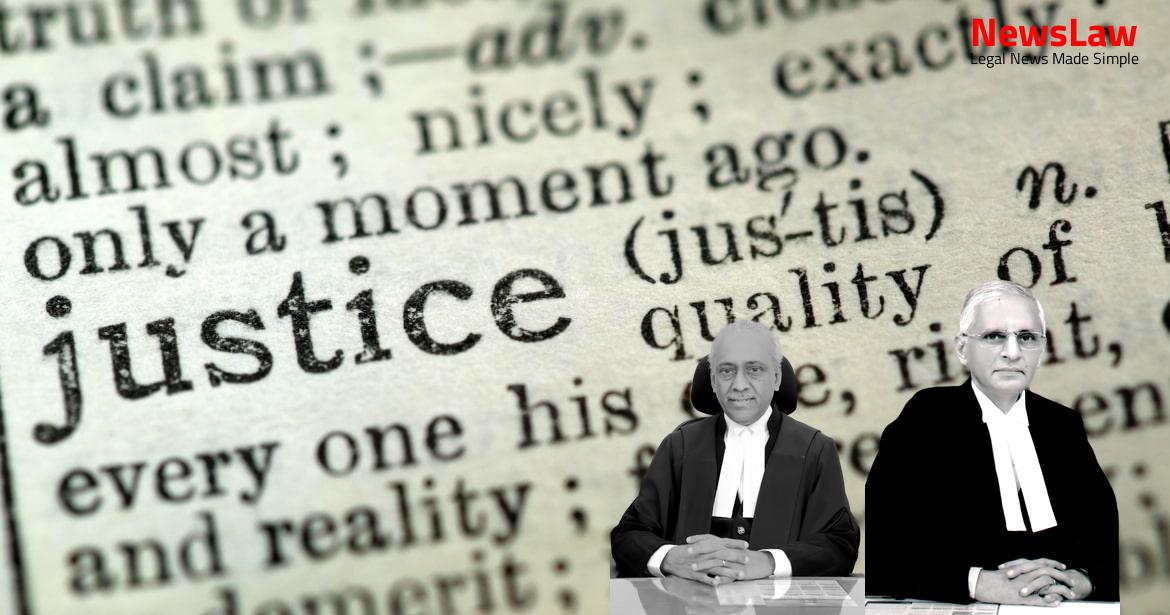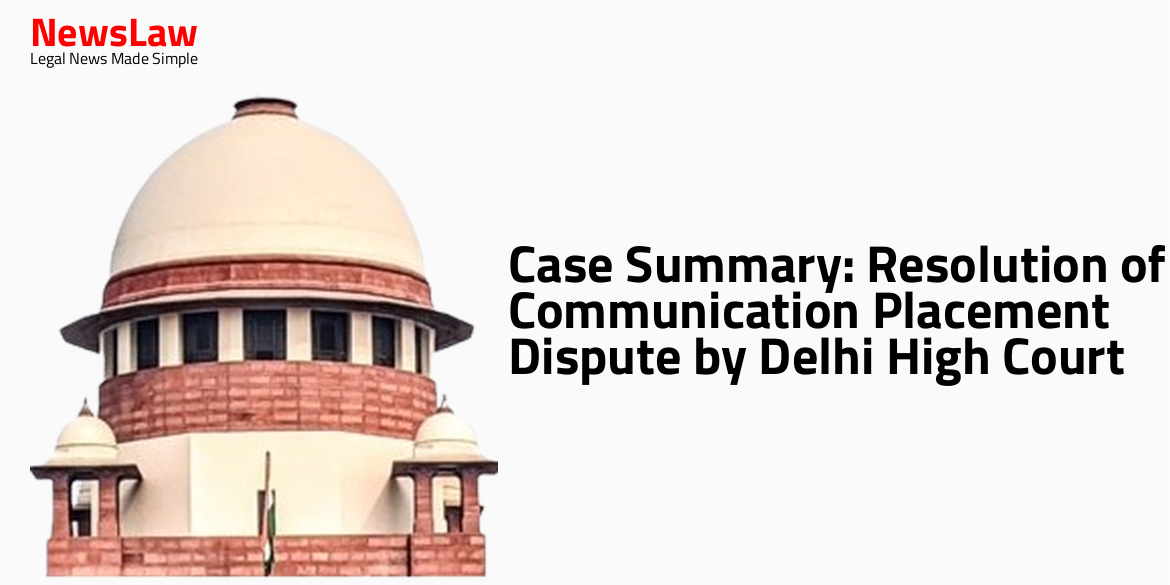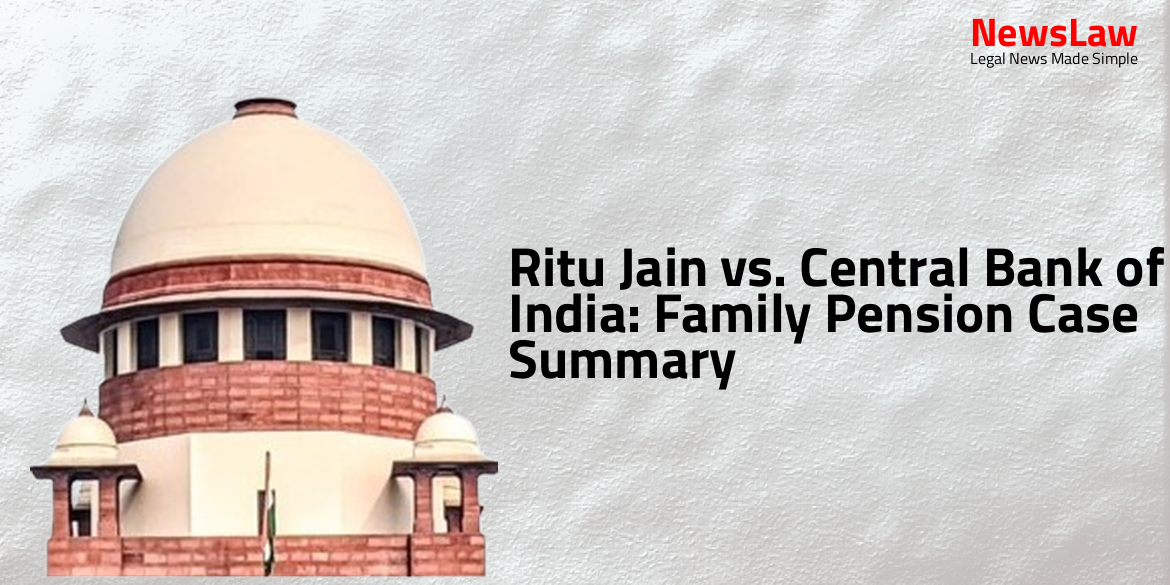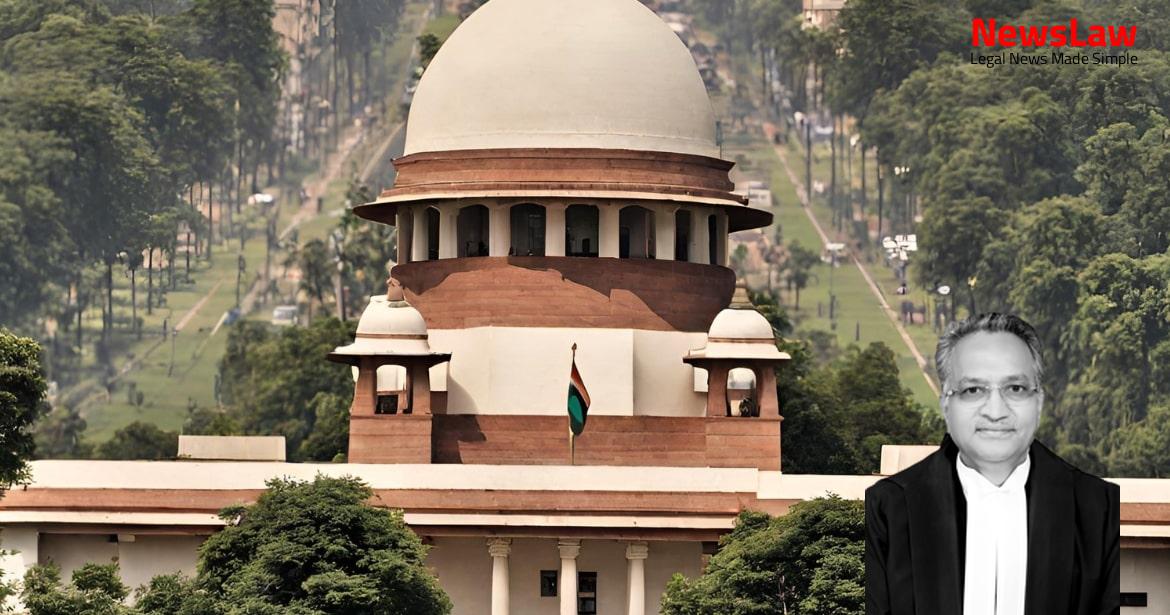Discover the detailed judicial analysis behind the transfer of a matrimonial case from one court to another. Explore the legal reasoning and implications of this significant decision which reflects the court’s detailed examination of the case. Stay tuned for a fascinating legal insight into the complexities of family law.
Facts
- The petitioner, Mr. Dipankar Haldar, filed a petition seeking the transfer of the Matrimonial Case No. 67 of 2013 from Alipore, Kolkata, to a competent court in New Delhi.
- The petitioner and respondent were married on 26.11.1993 in Kolkata as per Hindu rites.
- They have a major son named Mr. Indrajeet Haldar from their marriage.
- The parties lived together as husband and wife until 22.01.2012, after which they started living separately due to differences.
- Ms. Teesta Haldar, the respondent, had filed for divorce as Matrimonial Suit No. 67 of 2013 in Additional District Judge 6th, Alipore.
Also Read: Electoral Malpractices in Mayor Election
Decision
- The respondent-wife is to take specific furniture items from the house of Mr. Dipankar Haldar as listed in the Settlement Agreement.
- Both parties have agreed to close all joint bank accounts and cooperate in providing required assistance for the same.
- The respondent-wife shall not claim Stridhan, maintenance past, present, future, and permanent alimony.
- Both parties are to refrain from making any further claims, whether criminal or civil, against each other.
- The specified furniture and valuables belonging to Ms. Teesta Haldar are to be returned by Mr. Dipankar Haldar within six months.
- All pending cases and claims between the parties are to be withdrawn, and no new litigation is to be initiated against each other.
- The settlement agreement is entered into voluntarily and mutually, with both parties committing to abide by the terms and conditions.
- Both parties agree to act in good faith in fulfilling their obligations under the agreement and not make false statements against each other.
- By signing the agreement, both parties confirm that they have no further claims or demands against each other, settling all disputes through Mediation.
- The parties authenticate their agreement by signing the settlement agreement.
Also Read: Balancing Power and Transparency: Electoral Bonds Struck Down, Disclosure Mandated
Case Title: DIPANKAR DEBAPRIYA HALDAR Vs. TEESTA DIPANKAR HALDAR (2021 INSC 236)
Case Number: T.P.(C) No.-000429 / 2019



